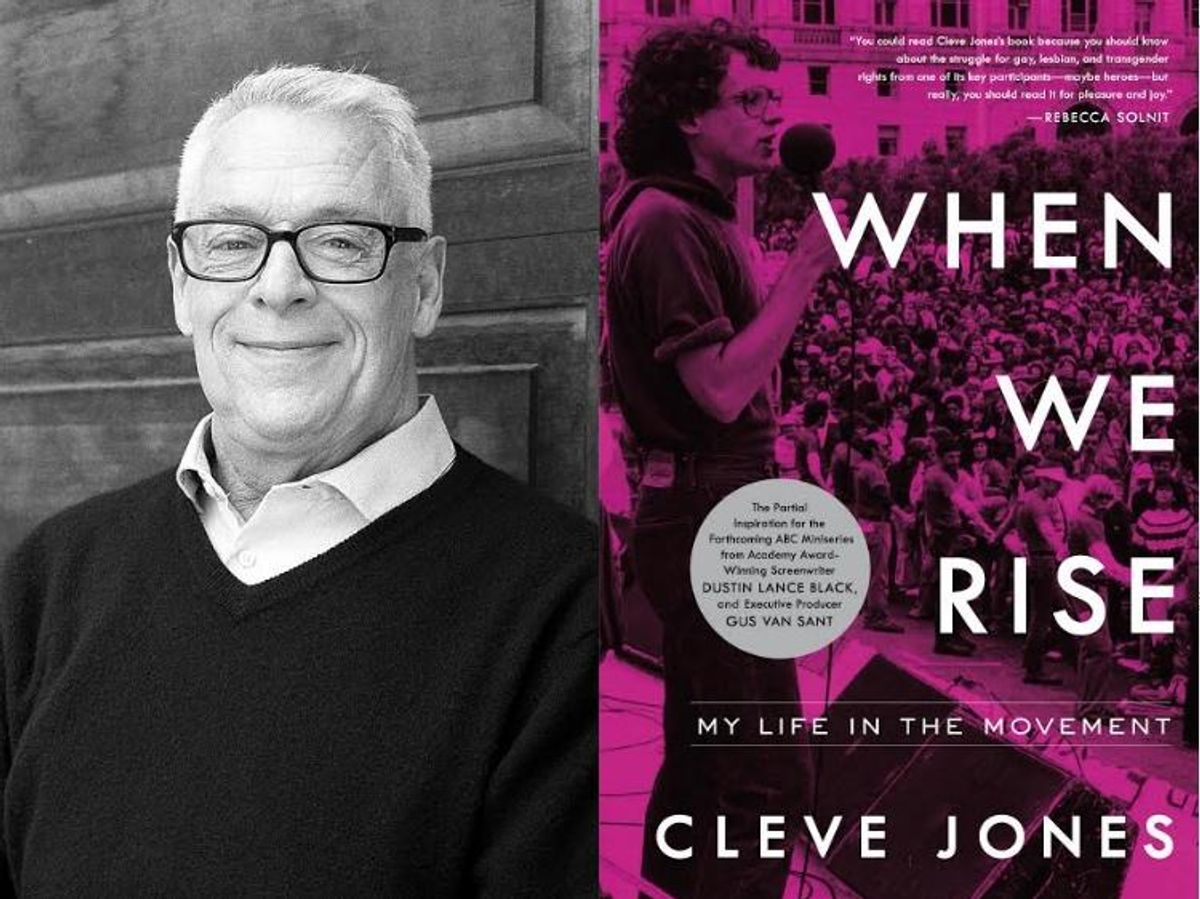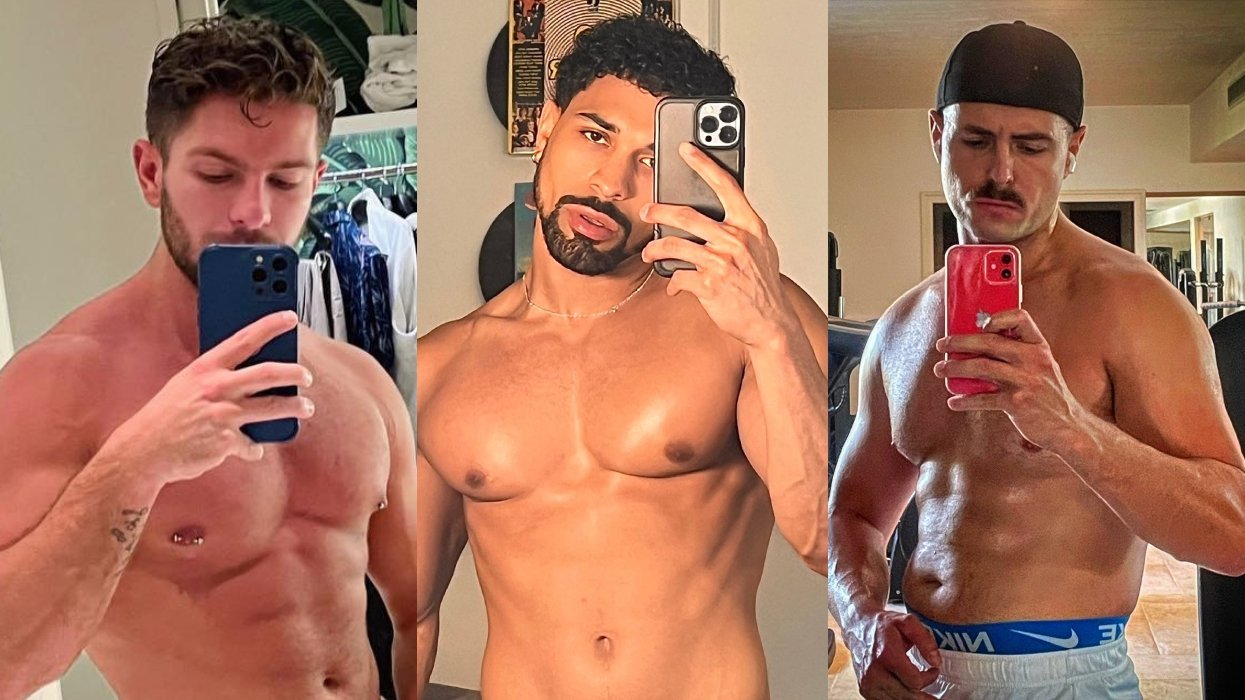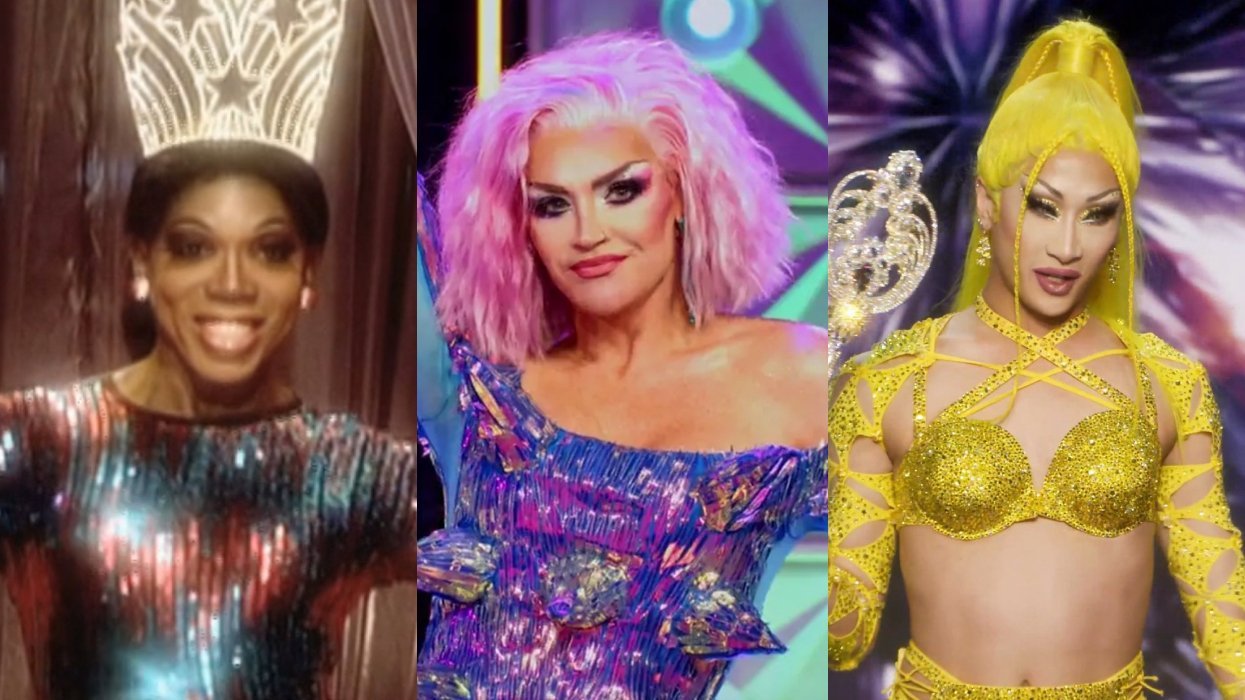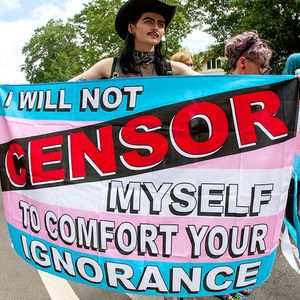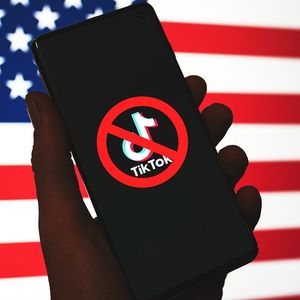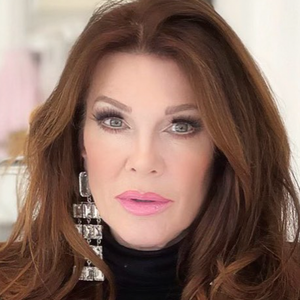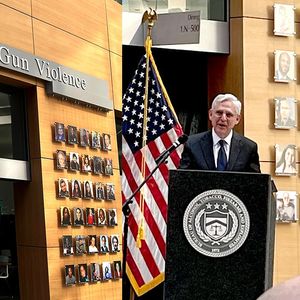Cleve Jones has seen some shit. He organized for gay rights in San Francisco with Harvey Milk, and picked up the baton after Milk was assassinated in 1978. He fought an indifferent administration as his friends died rapidly in succession, creating the AIDS Memorial Quilt in response to that indifference. He lived to see marriage equality become the law of the land. And he's lived to see Donald Trump elected President of the United States. In spite of all the shit he's seen, Cleve worries that an America under Trump may be the worst yet.
In When We Rise: My Life in the Movement, Jones recounts his own awakening as an activist and the early efforts at mobilization in the name of the nascent gay community. When I originally spoke to him in late September, the book already seemed relevant, but almost in a reflective way. He begins by chronicling the late-60s, when homosexuality was still considered a mental disorder, and ends in the final months of the Obama administration, during which LGBTQ rights saw their greatest expansion. When We Rise felt like a victory lap--one that includes an epic, all-star miniseries based in part on Jones's memoir and produced by the duo behind Milk, Dustin Lance Black and Gus Van Sant.
Still, Jones was wary of the political and social climate, even before Trump secured the electoral college, thus sending queers all over the country into a collective panic. "I have a lot of concerns about the younger generation coming up now," he said back in September, pointing to a complacency that ignored the importance of history.
"I think a lot of people--and this isn't just a problem for queer people by any means--Americans don't really believe in history. We're not taught it much, we don't study it much. So I'm concerned about the notion that we can relax. Everything that we've achieved can be swept away in the blink of an eye. Anyone who's done even a little reading of history should already know that."
This was one of the reasons he decided to write When We Rise--to remind LGBTQ people living in a post-Obama world of the long, hard road to get here as well as the incredible strength and resolve of those that came before them. Now that our community is facing the reality of those achievements being actually "swept away in the blink of an eye," the book is more than relevant--it's essential to understanding not only our past, but our future if we hope to overcome the oncoming onslaught.
***
One recurring theme in When We Rise, and one that Jones emphasizes when he speaks of creating change, is the inherent interdependence between groups and intersectionality in the struggle for equality--the idea that we are all, essentially, in this together.
"My heroes, the people who mentored me and inspired me, saw what we were doing as part of a larger, broader, deeper struggle for peace and for social justice. I am impatient with and frustrated by those who see this as just a single issue, who do not make that connection to other struggles. The tradition that I came out of said that all of these struggles were part of the same fight. You could not fight back against homophobia if you were not also fighting back against racism and war and poverty--these were all inextricably linked."
For Jones, this unification of spirit and resolve has been lost--a result of the growing and more pronounced divisions in America that he worried, pre-President-elect Trump, would lead to an unpleasant resolution.
"In the late-60s and early-70s, I really thought that some kind of revolution was possible, that we could rise up and create a more humane society, a more just society. Today I think there are some real similarities. The center is disappearing. We're moving more to the right, more to the left. The moderate Republicans are gone, the middle-of-the road Democrats are moving mostly to the left. That's potentially dangerous when the center goes away. Some people think this creates the opportunity maybe for revolutionary change--in our country right now, I think the potential is more towards a really scary and evil chapter in our history. In the early 1970s I was hoping for a revolution, now I think I'm fearing a civil war."
On the one hand, Jones is describing the death of baby boomer idealism, as that generation struggles to deal the manifestations of its own shortcomings and failures, but he is also speaking to the tendency today to live in our own well-constructed bubbles of information and opinion that leave little to no room for dissenting opinions. So with California already threatening secession, is civil war really that far off? Only if we'd all rather run away than stay here and fight.
***
A year and a half ago, Jones had warned his friends and followers on Facebook to stop laughing at Trump and to take him seriously because "he could become our next president." However, not even this precognitive awareness could have prepared him for what transpired last week. And in no uncertain terms, he is terrified.
"I've had a lot of white liberals--gay people, especially younger people--say things like, 'Well, we survived Reagan,' or 'We survived Bush.' That really infuriates me," Jones says, days after the election. "Maybe they survived, but most of my friends did not survive that period. I'm talking about my gay brothers, half my generation, did not survive Reagan/Bush. They died horribly, and painfully. The hundreds of thousands of civilians across the planet who were imprisoned and tortured and killed during those wars and coups d'etat that were supported by Reagan and Bush did not survive.
"So people need to get over this cavalier approach and understand that these policies will bring misery and death to huge numbers of people. Many people are comparing this to Reagan and Bush. I think that is not an apt comparison. If one wants to really be clear about what is happening here, we should look to 1933. Germany. I'm that frightened."
This is not the first time I've heard Trump likened to Hitler, as this is how demagogues and dictators come to power--by vilifying one group or groups, blaming them for the ills of society, and positioning oneself as the only person who can bring about change, who can "Make America Great Again." The comparison is not, as some have suggested, hyperbole, but just the reality of where we're at as a country and as a global society that's quickly becoming more nationalistic and xenophobic.
"I do believe, separate and apart from any particular election or movement, that we are going to have to guard against a rise in a crude sort of nationalism or ethnic identity or tribalism that is built around an 'us' and a 'them,'" President Obama warned recently on his final foreign trip in office.
So the Hitler comparisons should not be ignored or taken lightly--as Trump's initial sights on the presidency were. We all need to pay the fuck attention. And, as Jones suggests, young people have to "prepare themselves for the reality that they may spend the rest of their lives trying to undo what we did last Tuesday."
***
So...where do we go from here? And how do we maintain our sense of hope because the prospect of fighting for the rest of my life to restore what we had for a few brief shining moments is, to say the least, unappealing and downright fucking frustrating.
Jones has a few practical tips. He says we need to focus on the 2018 midterm elections and recapturing at least the House of Representatives. Jones is also worried about the divisive rhetoric among liberals, urging young people and the LGBTQ community against a capacity for empathy that is limited by one's own identities or experiences.
"We need empathy, we need solidarity. It's not enough to point fingers at each other, we need to build a broad-based movement to turn this around and that requires all of the 99%."
As for hope, Jones has the advantage of experience that effectively puts things in perspective.
"There have just been so many times in my life when I thought it was over. There have been so many times in my life when I or my community or our country has faced appalling disasters where you're just kind of left reeling and thinking, 'Oh my god, how will we ever survive?' But I have endured and the movement has endured and we will get through this.
"But we don't get through it by minimizing what has happened. We don't get through it by turning our eyes away from the incredibly vicious racism and xenophobia that helped fuel this. And we certainly don't get through this by avoiding the great economic inequalities in this country that have fueled this just as much as the racism and xenophobia. There's a lot of people hurting out there, a lot of people who are scared. When people are in pain or are in fear, they very often tend to do irrational things, to lash out at each other, to vote against their own self interests, and that's what's happening now. So we need to be smart, we need to be strategic, we need to be relentless, we need to respect each other and have each other's backs."
When We Rise: My Life in the Movement is available from Hachette Books November 29.
